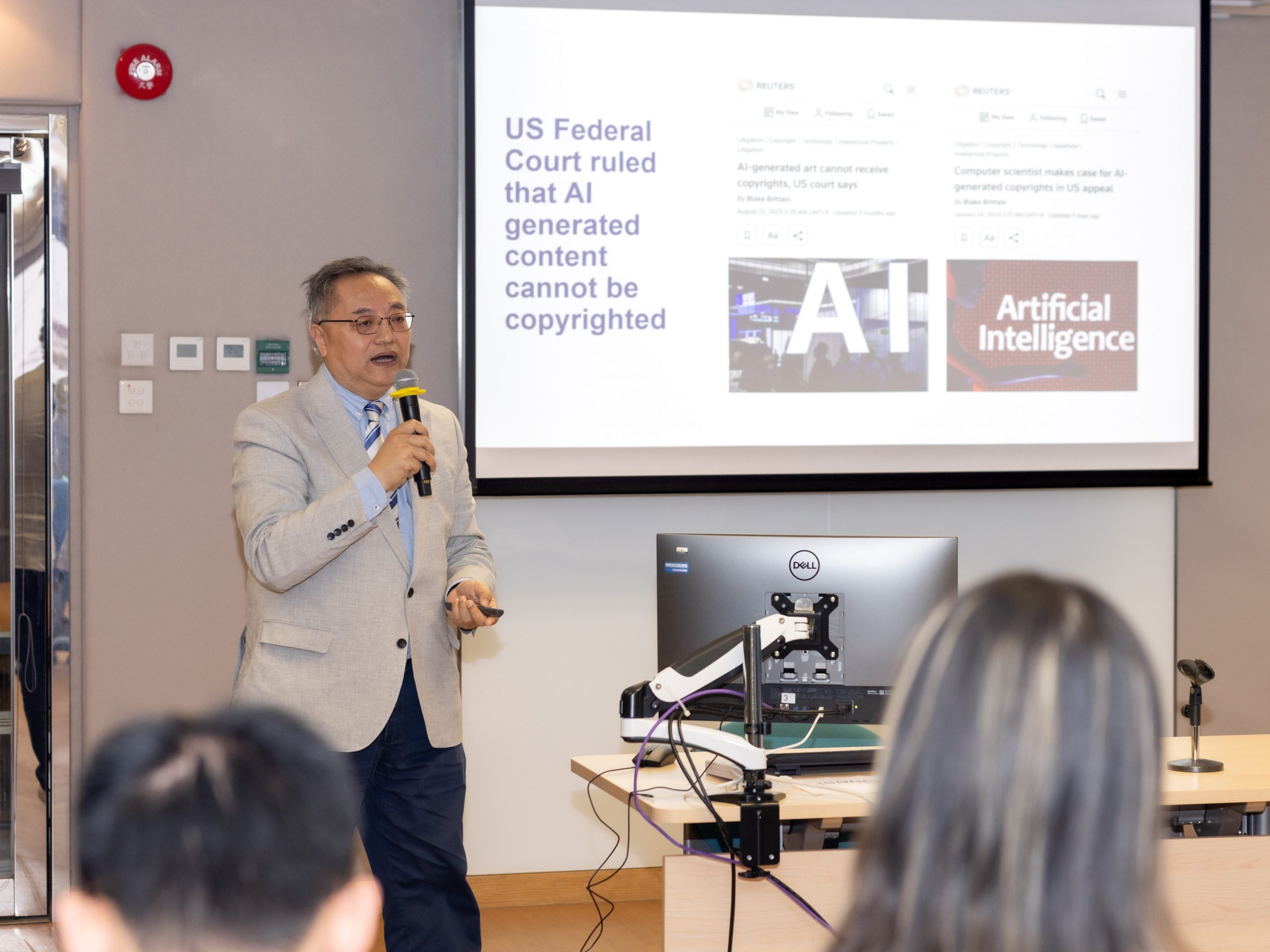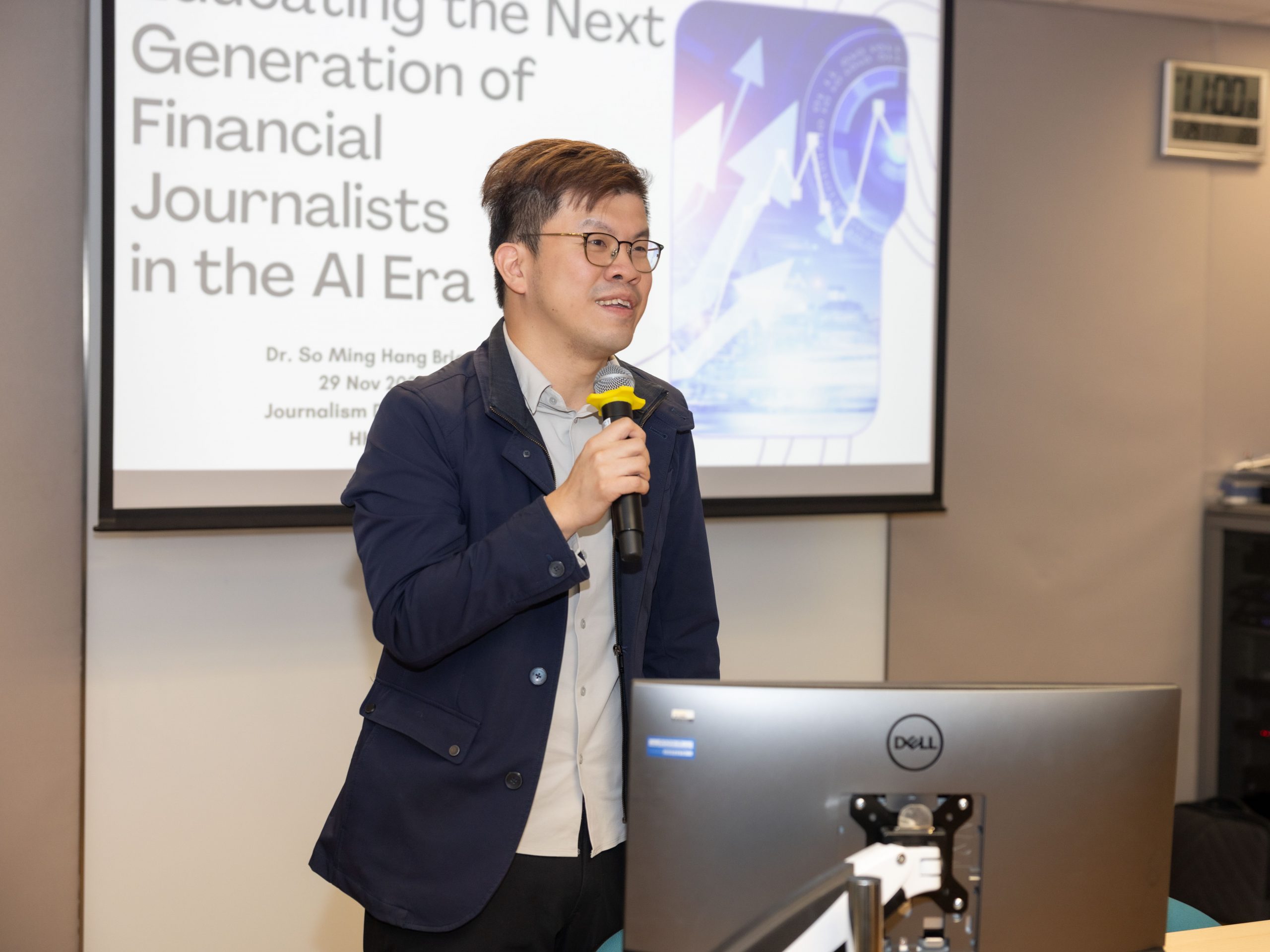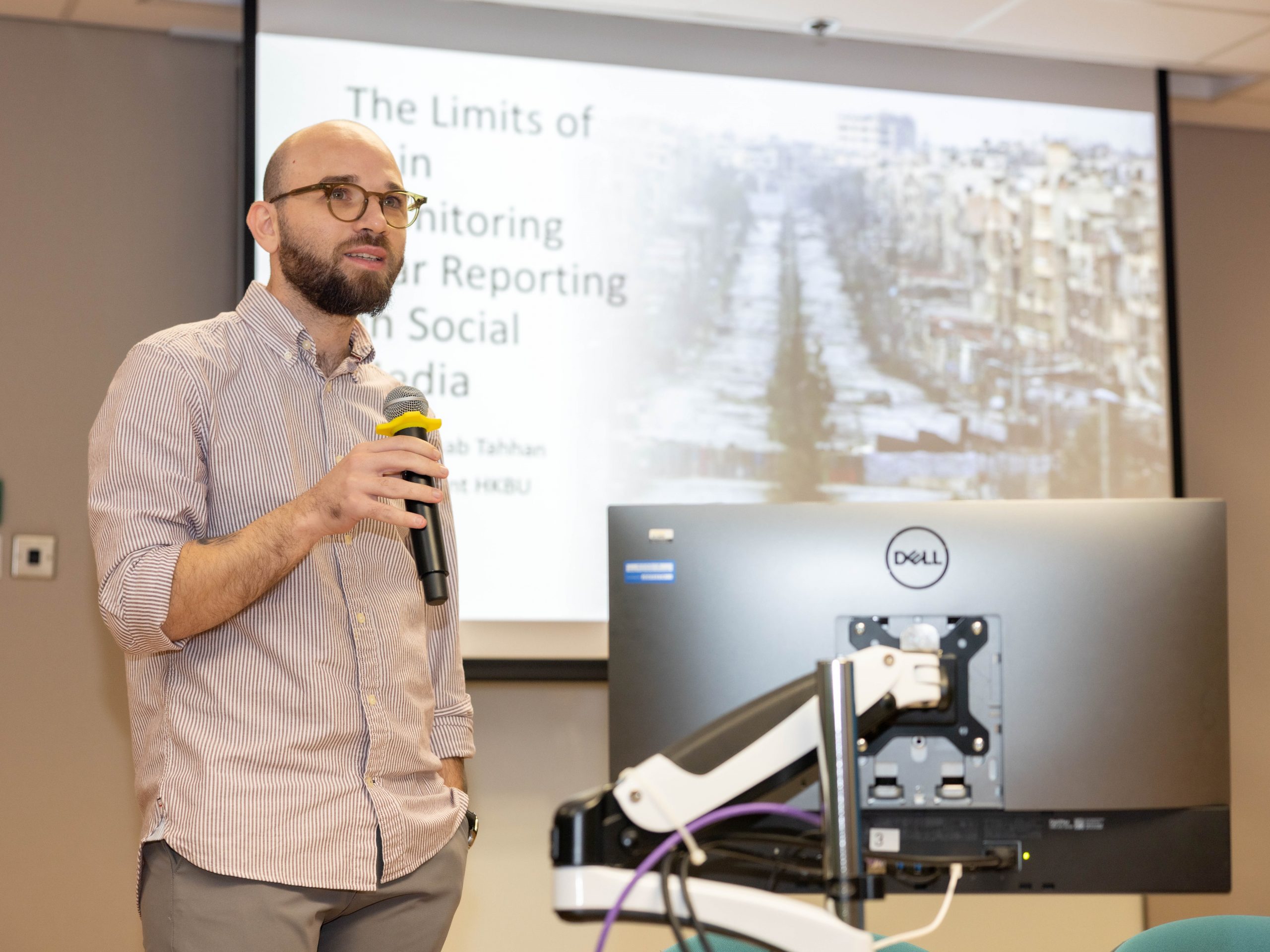Published: 2025-01-07
The evolving role of artificial intelligence in journalism and news reporting is prompting critical discussions about its professional and ethical ramifications. These issues were at the forefront of research presented by several scholars in School of Communication’s Department of Journalism at a recent conference co-organised by Hong Kong Baptist University and Renmin University of China in late 2024.
Under the theme ‘Embracing Digital Futures: Exploring the Synergy of AI, Communication, and Future Media,’ the event delved into AI’s impact on social media, journalism, and the media landscape. Key topics included AI’s potential to combat or spread disinformation and its effect on public engagement in democratic processes. From the over 100 papers presented, the discourse on AI’s integration and influence on journalism practices was a highlight of the conference.
Will AI be replacing Human Journalists soon?
Although news organisations across the world are fast adopting AI tools in news production and dissemination process, many journalists still remain concerned about whether AI could replace them at their jobs or cause the practice to become extinct. Raymond Li (Head, Department of Journalism) assures that this will not be happening anytime soon. In his presentation titled ‘Future of Journalism in the Age of AI’, Li summarized the benefits and limitations of using generative AI in journalism, the opportunities and challenges that generative AI brings to journalists, and how journalism education should prepare for the changes ahead.
 |
Raymond Li speaking at the conference |
Emphasising the irreplaceable role of humans in the future of journalism, Li argued that a total reliance on AI technology may, in fact, be detrimental to the practice as they are capable of generating fake news contents, deep fake videos, and false images which will require human efforts to verify and authenticate. “Humans are biased, but generative AI may be even worse. ChatGPT could be the next misinformation super spreader,” Li remarks, “So, human journalists will continue to play crucial roles in the future alongside AI”.
Li foresees a future where AI and human journalists will collaborate effectively and argued the integration of AI tools in journalism will enhance journalistic workflows while retaining human editorial foresight. “As AI becomes more integrated into newsrooms, human journalists need to develop some new skills such as data literacy, AI proficiency, and multimedia skills in order to keep up with AI developments,” he concludes.
Adoption of AI in Journalism: Resistance and Acceptance
Nick Zhang’s (Department of Journalism) presentation titled ‘Mapping Generative-AI Applications in Frontline Journalism Practices in Hong Kong: Challenges and Possible Innovative Opportunities’ provides an empirical corroboration to Li’s position. A preliminary result from Zhang’s study which examined Hong Kong journalists’ exposure to, acceptance of, and adoption of AI tools in news production, revealed that majority of the journalists’ media organizations did not have a clear strategy for using AI and they rarely used AI tools in their work.
 |
Nick Zhang speaking at the conference |
Zhang also observed that while Hong Kong journalists generally have a positive attitude towards AI, most of them remain sceptical about the accuracy of AI tools, as they juxtapose both the benefits and ethical concerns necessitated by AI. To reduce this scepticism and ensure journalists are more open to using AI in their works, Zhang suggested a strategic and integrative adoption of AI tools by Hong Kong media organisations. “Newsroom manpower requires knowledge and skillset upgrades. On-going learning and organizational support are essential to achieve that”, he concludes.
To enhance the adoption of AI in journalism, it is essential to train practicing journalists and educate student journalists on how to effectively use these tools to augment their work. However, just as Zhang observed journalists’ reluctance to use AI, Brian So (Department of Journalism) identified similar hesitancy among the journalism students he teaches. In his presentation titled ‘Educating the Next Generation of Financial Journalists in the AI Era’, So attributed the slow adoption of generative AI in higher education to uncertainty about how to integrate AI into their academic work and ambiguity regarding the boundaries of responsible AI use.
 |
Brian So speaking at the conference |
“Despite the opportunities it presents, students are hesitant to use AI tools for journalistic tasks due to concerns over effort, academic integrity, and a lack of ownership of AI-generated work”, he notes. According to So, the reluctance in the adoption of AI among students is a clear indication that AI will not be replacing humans because many of them are concerned about its ethical boundaries and its potential to erode traditional journalistic practices if heavily relied on. “It’s time for us to build an environment where students can use AI with more confidence without worrying too much about violating certain usage policies”, he surmises.
AI vs Human Journalists: Reporting War with AI
The integration of AI into news reporting is not without its challenges. Abdulwahab Tahhan (RPg Student) in his presentation titled ‘The Limits of AI in Monitoring War Reporting on Social Media’ expatiated on the challenges and limitations of using AI to monitor war reporting in conflict zones. Underscoring the importance of human journalists in crisis reporting, Tahhan noted that war zones like Syria are often inaccessible to foreign journalists, making traditional reporting challenging. Consequently, local media centres and social media accounts become essential sources of information in these regions.
 |
Abdulwahab Tahhan speaking at the conference |
Tahhan also identified linguistic variation as a major challenge for AI reporting in Syria, as AI language models struggle to understand Arabic, the primary language spoken in Syria. “AI is trained using large language models that only recognise formal Arabic – the language of the Quran, but the problem is that nobody speaks this version of Arabic. Everybody uses the informal version” says Tahhan. He noted that the ambiguity in the evolving terminologies makes it difficult for AI to effectively monitor the war in Syria. “This is one of the reasons I believe that AI cannot replace human journalists yet, especially for war reportage”, Tahhan concludes.
These discussions, not only, offer insights into the evolving landscape of automated systems and news reporting, they also establish a foundation for a deeper understanding of AI’s transformative potential in redefining journalism, as well as its possible negative impacts on factual journalism if left unchecked. Additionally, the speakers presented empirical evidence to ease concerns about AI replacing human journalists and emphasized that training and skill acquisition are essential to fully leverage the benefits of AI tools in journalism.